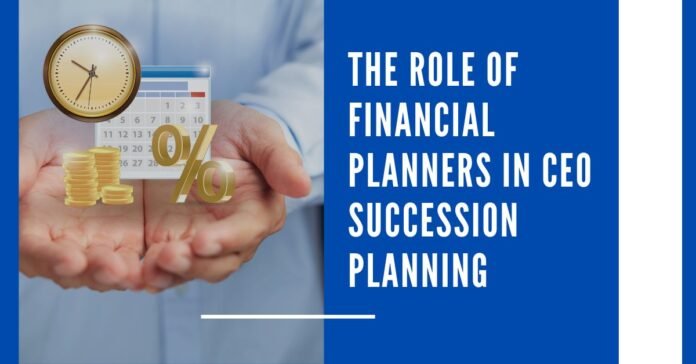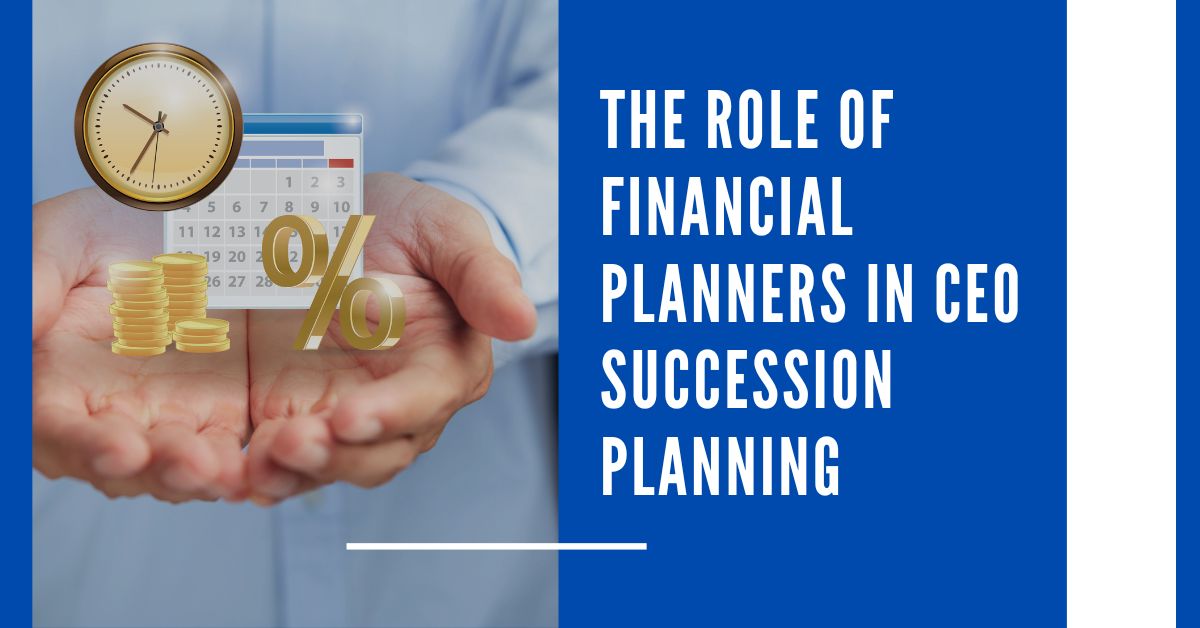CEO succession planning is a critical process for any organization, ensuring a smooth transition and continued success when a chief executive decides to step down or retire. Financial planners play a pivotal role in this process, especially in aligning financial strategies with the long-term goals of the company. Here’s how financial planners contribute to effective CEO succession planning.
Assessing Financial Health and Risks
Financial planners begin by assessing the current financial health of the company. This involves reviewing financial statements, evaluating liabilities and assets, and understanding the company’s market position. They identify financial risks that could impact the company during the transition period, such as cash flow shortages or significant debt levels. This step is crucial as it helps in making informed decisions and preparing for any financial contingencies that might arise during the transition.
Strategic Financial Forecasting
Post-assessment, financial planners forecast future financial scenarios based on different succession outcomes. This includes analyzing how potential CEO candidates might impact financial strategies, investments, and market positioning. Strategic forecasting helps the board and other stakeholders understand the financial implications of each succession option. This proactive approach aids in minimizing financial surprises and aligns the succession plan with the company’s financial health and market dynamics.
Guidance on Financial Governance
Effective financial governance is crucial during a CEO transition. Financial planners advise on the best practices for financial management, ensuring that interim or new CEOs have clear guidelines on financial policies and procedures. This governance framework supports a stable financial environment that can adapt to leadership changes. Financial planners play a key role in maintaining continuity and stability, which are vital during the transition phase.
Planning for Transition Costs
CEO transitions can incur various costs, including severance packages, recruitment expenses, and potential changes in strategic direction. Financial planners help in budgeting for these costs, ensuring that the company’s finances are not adversely affected during the transition. They provide a detailed analysis of expected costs and help develop strategies to manage them effectively without disrupting the company’s financial stability.
Supporting Compensation Planning
Determining the compensation package for the outgoing and incoming CEO is a sensitive task. Financial planners provide insights into competitive compensation benchmarks and help structure packages that align with the company’s financial capability and strategic goals. This ensures that the compensation packages are attractive yet sustainable, balancing fairness and financial prudence.
Ensuring Compliance and Due Diligence
Financial planners ensure that all financial actions taken during the succession process comply with regulatory requirements and financial reporting standards. They oversee due diligence to prevent any financial irregularities that could tarnish the company’s reputation. This includes reviewing contracts, agreements, and other legal documents to ensure that they are in line with financial laws and regulations.
Facilitating Stakeholder Communication
Clear communication with stakeholders about the financial implications of CEO succession is vital. Financial planners often prepare reports and presentations for stakeholders, outlining the financial strategy and ensuring transparency throughout the succession process. This helps in building trust and confidence among shareholders, employees, and other key stakeholders.
Integrating New Strategies with Financial Planning
When a new CEO is appointed, they may bring new strategic directions for the company. Financial planners help integrate these new strategies with existing financial plans to ensure a cohesive approach that supports the company’s objectives. This integration is critical to ensure that the new strategies are financially viable and aligned with the company’s long-term financial health.
Monitoring Financial Performance Post-Succession
After the new CEO is in place, financial planners continue to monitor the company’s financial performance. They provide ongoing advice to the new leadership on achieving financial targets and making adjustments to financial strategies as needed. This ongoing support is crucial to ensure that the company remains on a stable financial path and can adapt to new challenges and opportunities.
Developing a Financial Emergency Plan
In case of an unexpected CEO departure, having a financial emergency plan is crucial. Financial planners develop these plans to ensure that the company can maintain financial stability and continue operations without disruption. This planning includes identifying potential interim leaders and ensuring that they have the necessary financial acumen to manage the company effectively during the transition.
Training and Development
Financial planners often participate in training and development programs for potential successors from a financial management perspective. This training ensures that the upcoming CEO understands the financial intricacies of the company and is prepared to handle them effectively. This is essential for a smooth transition and for maintaining the financial integrity of the company.
Long-Term Financial Planning
Beyond the immediate succession, financial planners help in long-term financial planning to support the new CEO’s strategic vision. This includes investment strategies, capital allocation, and long-term financial risk management. These efforts are crucial to ensure that the company’s financial strategy supports its strategic objectives and can adapt to future challenges.
Conclusion-
The involvement of financial planners in CEO succession planning is indispensable. They provide the financial expertise needed to ensure that the transition does not adversely affect the company’s fiscal health and help align financial strategies with new leadership directions. For organizations looking to secure their future through thoughtful leadership transitions, engaging a Financial Planner for Chief Executives in India is a strategic move that can lead to sustained success and stability.


